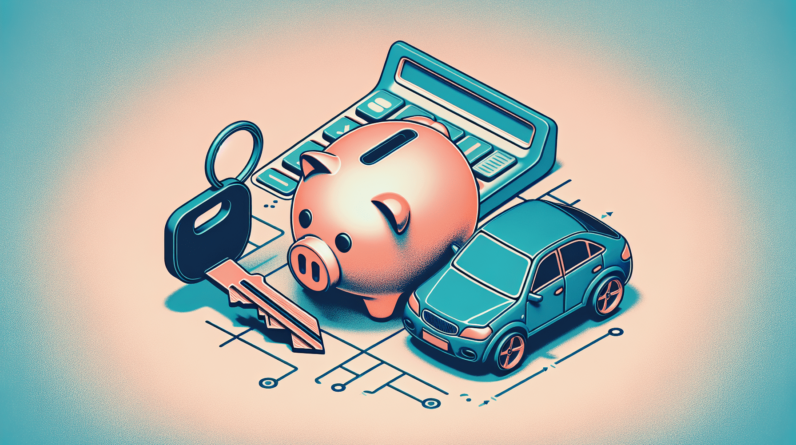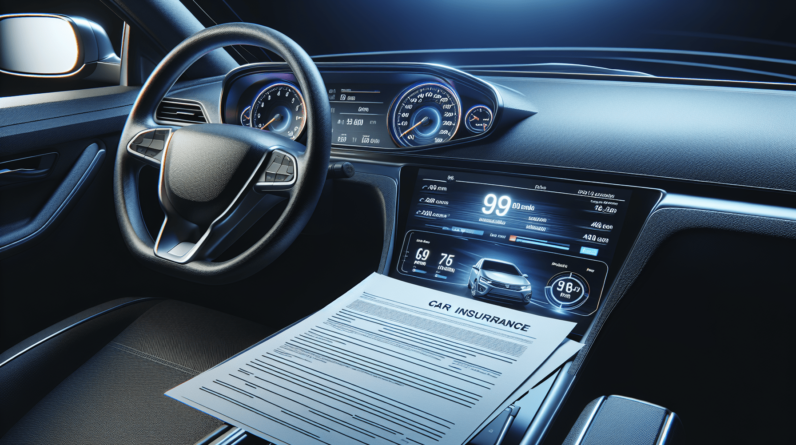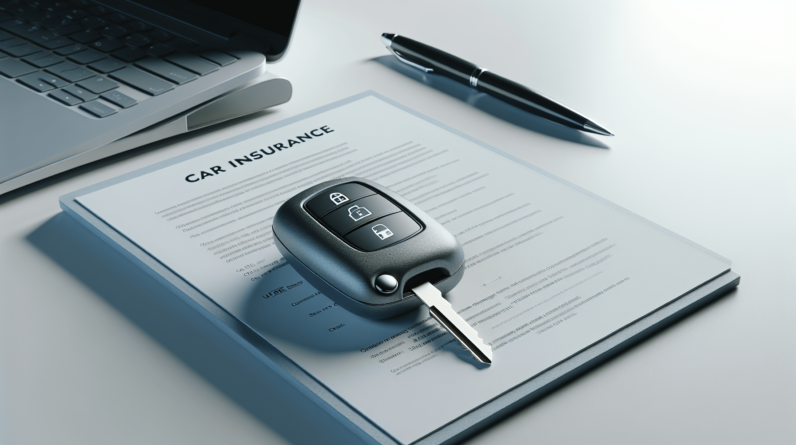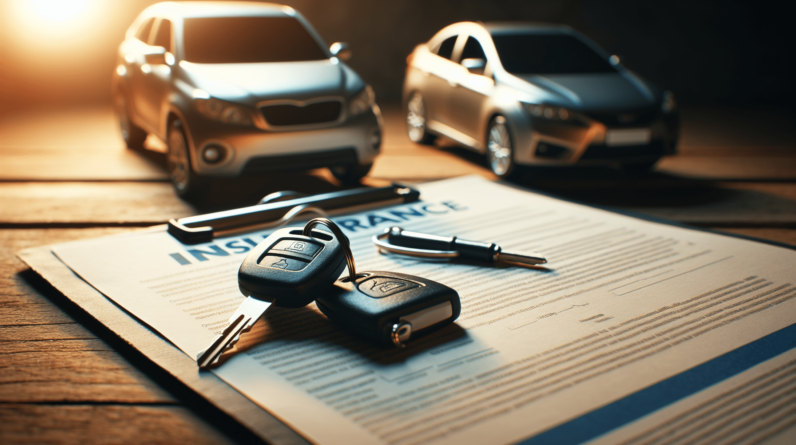
When your car is totaled by insurance, find out what happens next. Understand the total loss process, insurance payout, options, and steps to settle the claim. Get helpful information here.
So you’ve experienced the unfortunate event of having your car declared totaled by your insurance company. It’s a situation no one hopes to be in, but understanding what happens next can help ease the stress and uncertainty. When your car is deemed totaled by insurance, it means that the cost of repairing the damages exceeds the actual value of the vehicle. In such cases, the insurance company will typically offer you a cash settlement based on the car’s market value at the time of the accident. This often leaves car owners wondering what their options are, but fear not, as this article will guide you through the process and provide helpful information to navigate this situation with confidence.
Determining Total Loss
Definition of Total Loss
When your car is declared a total loss by your insurance company, it means the cost of repairing the vehicle exceeds its actual cash value (ACV). Essentially, the vehicle is considered too damaged or uneconomical to be repaired and returned to its pre-accident condition.
Factors Considered by Insurance Companies
Insurance companies take several factors into account when determining whether a vehicle should be declared a total loss. These factors include the age and condition of the vehicle, the extent of the damage, and the cost of repairs. Additionally, state regulations and insurance policy provisions may also influence the decision.
Calculating Total Loss Threshold
There is a specific threshold that insurance companies use to determine if a vehicle should be declared a total loss. This threshold is often a percentage of the vehicle’s ACV, typically ranging from 50% to 75%. If the cost of repairs exceeds this threshold, the vehicle will likely be deemed a total loss.
Deciding to Total a Vehicle
Once your insurance company has determined that your vehicle is a total loss, they will typically notify you of their decision. At this point, you must decide whether you want to accept the total loss or explore other options such as rebuilding the vehicle or retaining ownership. It’s important to carefully consider your options and consult with your insurance company before making a decision.

Insurance Payout Process
Actual Cash Value (ACV)
When your vehicle is declared a total loss, the insurance company will typically offer you the actual cash value of the vehicle. ACV is the value of the vehicle immediately before the accident, taking into account factors such as age, mileage, and condition. The insurance company will calculate this value based on market research and industry standards.
Deductibles and Out-of-Pocket Expenses
Before receiving your insurance payout, you may need to pay any applicable deductibles and out-of-pocket expenses. These expenses can include your deductible amount as well as any charges for towing or storage of the vehicle. It’s important to review your insurance policy to understand your financial responsibilities in the event of a total loss.
Insurance Company Evaluation
Once the insurance company has determined the ACV of your vehicle, they will evaluate any additional special features or modifications that may increase its value. This evaluation ensures that you receive a fair settlement that takes into account any unique characteristics of your vehicle.
Options for Handling Total Loss
After receiving the insurance payout, you have various options for handling the total loss. You can use the funds to purchase a replacement vehicle, apply it towards the purchase of a new vehicle, or use it for other financial needs. Additionally, you may have the option to retain ownership of the totaled vehicle or even explore the possibility of rebuilding it.
Settling the Claim
Contacting Insurance Company
When your car is declared a total loss, it’s important to contact your insurance company as soon as possible. They will guide you through the claims process and provide you with the necessary information and instructions to proceed.
Providing Necessary Documentation
To settle the claim, you will need to provide certain documents to your insurance company. These documents typically include the vehicle’s title, registration, and insurance information, as well as any relevant photographs or repair estimates. It’s important to gather all the required documentation promptly to expedite the settlement process.
Insurance Company Assessment
Once you have submitted the necessary documentation, the insurance company will assess the information provided along with their own evaluation to determine the final settlement amount. They may consider factors such as the ACV, salvage value, and any other relevant information to arrive at a fair settlement.
Negotiating the Settlement
If you believe the offered settlement amount is not fair or reasonable, you have the right to negotiate with your insurance company. You can present any additional evidence or information that supports your claim for a higher settlement. However, it’s important to approach negotiations in a respectful and informed manner to achieve the best possible outcome.
Salvage and Retained Ownership
Determining Salvage Value
When a vehicle is declared a total loss, it is assigned a salvage value. This value represents the estimated worth of the damaged vehicle in its current state. The salvage value is typically determined through a process of appraisal and market research.
Buyback Option
If you choose to retain ownership of your totaled vehicle, your insurance company may offer you the option to buy it back at its salvage value. This can be a cost-effective solution if you plan to rebuild the vehicle or use it for parts. However, it’s important to carefully consider the potential costs and challenges associated with rebuilding a totaled vehicle.
Title Branding
When a vehicle is declared a total loss, it receives a title brand indicating its salvage status. This branding serves as a warning to future buyers that the vehicle has been significantly damaged and rebuilt. This can affect the vehicle’s resale value and may make it more difficult to obtain financing or insurance in the future.
Retained Ownership
If you choose to retain ownership of your totaled vehicle, you will be responsible for taking the necessary steps to repair and rebuild it. This process may involve obtaining salvage titles, coordinating repairs, and ensuring the vehicle meets all legal and safety requirements. It’s important to consult with your insurance company and local authorities to understand the specific regulations and requirements in your area.
Financing and Leased Vehicles
Impact on Outstanding Loans
If you have an outstanding loan on a vehicle that is declared a total loss, the insurance payout will typically be applied towards the remaining balance of your loan. However, it’s important to review your loan agreement and consult with your lender to understand how the total loss will impact your financial obligations.
Leased Vehicle Considerations
If your vehicle is leased and declared a total loss, the insurance payout will typically be paid to the leasing company, as they are the legal owner of the vehicle. It’s important to review your lease agreement and consult with the leasing company to understand your rights and responsibilities in this situation.
Receiving the Payment
Payment Directly to Lienholder
If you have an outstanding loan on the totaled vehicle, the insurance payout may be made directly to the lienholder. This ensures that the funds are applied towards the remaining balance of your loan. It is important to communicate with your lienholder and coordinate the payment process.
Payment to Vehicle Owner
If there is no outstanding loan on the totaled vehicle, the insurance payout will typically be made directly to you, the vehicle owner. This gives you the flexibility to use the funds as needed, whether it’s towards the purchase of a new vehicle or for other financial needs.
Timeframe for Receiving Payment
The timeframe for receiving the insurance payout for a totaled vehicle can vary depending on various factors, including the efficiency of the claims process and any necessary documentation or evaluations. It’s important to communicate with your insurance company to understand the expected timeline and address any delays promptly.
Alternative Dispute Resolution
Appraisal Clause
In the event of a dispute over the settlement amount for a totaled vehicle, some insurance policies include an appraisal clause that allows for an independent appraisal to be conducted. This process involves hiring a neutral appraiser to assess the vehicle and provide an objective valuation. The appraiser’s determination can help resolve the dispute and facilitate a fair settlement.
Mediation
If negotiations with the insurance company reach an impasse, mediation can be an effective alternative dispute resolution method. Mediation involves a neutral third party who helps facilitate discussions between you and the insurance company to find a mutually acceptable resolution. Mediation can provide a less adversarial and more cooperative approach to resolving disputes.
Arbitration
If all other forms of dispute resolution fail, arbitration can be pursued. Arbitration involves presenting the case to a neutral third party, known as an arbitrator, who will review the evidence and make a binding decision. It’s important to carefully review your insurance policy and understand the terms and conditions surrounding arbitration before pursuing this option.
Repairable Total Loss
Rebuilding a Totaled Vehicle
In some cases, you may have the option to rebuild a totaled vehicle instead of accepting the insurance payout. This involves coordinating repairs to bring the vehicle back to a safe and roadworthy condition. However, rebuilding a totaled vehicle requires expertise, resources, and careful consideration of local regulations and safety standards.
Branded Title – Salvage Title
When a totaled vehicle is rebuilt and retitled, it typically receives a branded title, commonly known as a salvage title. This branding serves as a permanent record that the vehicle was previously declared a total loss. It’s important to be aware that a salvage title can affect the vehicle’s resale value and may make it more challenging to obtain insurance and financing in the future.
Qualifications for Repairable Total Loss
Not all totaled vehicles are eligible for repair and rebuilding. Insurance companies will consider factors such as the extent of the damage, the availability of replacement parts, and the overall feasibility of restoring the vehicle to its pre-accident condition. It’s important to consult with your insurance company and follow local regulations to determine if your vehicle qualifies for repairable total loss status.
Diminished Value Claim
Definition of Diminished Value
Diminished value refers to the reduction in a vehicle’s market value following an accident, even after it has been properly repaired. This reduction is a result of potential buyers perceiving the vehicle to be less valuable due to its accident history. Diminished value claims seek compensation for this loss in value.
Eligibility for Diminished Value Claim
Not all states and insurance policies allow for diminished value claims. It’s important to review your policy and understand the laws in your state regarding diminished value claims. In some cases, you may need to provide evidence of the vehicle’s pre-accident value and its diminished value after the repairs to support your claim.
Process and Documentation
To pursue a diminished value claim, you will need to provide documentation such as repair records, photographs, and market research demonstrating the reduction in value. It can be beneficial to work with an appraiser or an attorney who specializes in diminished value claims to ensure you have all the required evidence.
Settlement for Diminished Value
If your diminished value claim is successful, the insurance company may offer you a monetary settlement to compensate for the reduction in your vehicle’s value. The settlement amount will depend on various factors, including the extent of the damage, the age of the vehicle, and the market conditions. It’s important to carefully review any settlement offers and consult with professionals to ensure you receive a fair compensation.
Next Steps After Total Loss
Cancellation of Insurance
If your vehicle is declared a total loss, you will typically need to cancel the insurance policy associated with that vehicle. Contact your insurance company to inform them of the total loss and request the cancellation. It’s important to verify any potential refund or adjustments to your premium based on the cancellation date.
Car Buying Process
If you decide to use the insurance payout towards the purchase of a replacement vehicle, the car buying process begins. Research different options, explore financing options if necessary, and thoroughly inspect any potential vehicles before making a decision. It’s important to find a vehicle that meets your needs and fits within your budget.
Dealing with Salvage Vehicle
If you choose to retain ownership of the totaled vehicle, you will need to make arrangements for its storage, repairs, or disposal. Depending on the condition of the vehicle and local regulations, you may need to tow it to a salvage yard or repair facility. It’s important to understand the requirements and costs associated with handling a salvage vehicle.
Considering Gap Insurance
If your vehicle was financed or leased, you may have had gap insurance to cover the difference between the remaining balance on your loan or lease and the actual cash value of the vehicle. With a total loss, gap insurance can help cover any remaining financial obligation and prevent you from being upside down on your loan or lease. It’s important to review your policy and consult with your insurance company to understand your coverage and options.
In conclusion, when your car is totaled by insurance, it can be a challenging and overwhelming process. Understanding the determination of total loss, the insurance payout process, and the various options available for handling a totaled vehicle is crucial. By familiarizing yourself with the steps involved and seeking guidance from your insurance company, you can navigate through this situation more confidently and make informed decisions. Remember to consider your individual circumstances and consult with professionals when necessary to ensure a smooth and fair resolution.






